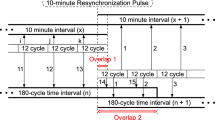Abstract
A field programmable gate array (FPGA)-based parallel architecture for the real-time and online implementation of the bivariate extension of the empirical mode decomposition (EMD) algorithm is presented. Multivariate extensions of EMD have attracted significant attention in recent years owing to their scope in applications involving multichannel and multidimensional data processing, e.g. biomedical engineering, condition monitoring, image fusion. However, these algorithms are computationally expensive due to the empirical and data-driven nature of these methods. That has hindered the utilisation of EMD, and particularly its bivariate and multivariate extensions, in real-time applications. The proposed parallel architecture is aimed at bridging this gap through real-time computation of the bivariate EMD algorithm. The crux of the architecture is the simultaneous computation of multiple signal projections, locating their local extrema and finally the calculation of their associated complex-valued envelopes for the estimation of local mean. The architecture is implemented on a Xilinx Kintex 7 FPGA and offers significant computational improvements over the existing software-based sequential implementations of bivariate EMD.









Similar content being viewed by others
Notes
Any interpolation scheme can be used for this purpose, though the cubic spline interpolation is the most widely used.
The detailed design and implementation for multiple complex envelope generation is discussed in the next subsection.
References
U. Abdullah, N. Rehman, M. Khan, D.P. Mandic, A multivariate EMD based approach to Pan-sharpening. IEEE Trans. Geosci. Remote Sens. 53(7), 3974–3984 (2015)
F. Agrafioti, D. Hatzinakos, A.K. Anderson, ECG pattern analysis for emotion detection. IEEE Trans. Affect. Comput. 3, 102–115 (2012)
M. U. Altaf, T. Gautama, T. Tanaka, D. P. Mandic, Rotation invariant complex empirical mode decomposition, in Proceedings of the IEEE International Conference on Acoustics, Speech, Signal Processing (2007)
L. W. Chang, M. Lo, N. Anssari, K. Hsu, N. E. Huang, W. W. Hwu, Parallel implementation of multidimensional ensemble empirical mode decomposition, in IEEE International Conference on Acoustics, Speech and Signal Processing (ICASSP) (2011), pp. 1621–1624, Prague
D. Chen, D. Li, M. Xiang, H. Bao, X. Li, GPGPU-aided ensemble empirical mode decomposition for EEG analysis during anaesthesia. IEEE Trans. Inf Technol. Biomed. 14(6), 1417–1427 (2010)
P. Flandrin, Empirical Mode Decomposition, accessed (May 2015). http://perso.ens-lyon.fr/patrick.flandrin/emd.html
P. Flandrin, P. Gonalvs, G. Rilling, Detrending and Denoising with Empirical Mode Decompositions, in Proceedings of the European Signal Processing Conference (EUSIPCO), Vienna, Austria, pp. 1581–1584 (2004)
Y.Y. Hong, Y.Q. Bao, FPGA implementation for real-time empirical mode decomposition. IEEE Trans. Instrum. Meas. 61(12), 3175–3185 (2012)
N.E. Huang, M.C. Wu, S.R. Long, S.S.P. Shen, W. Qu, P. Gloersen, K.L. Fan, A confidence limit for the empirical mode decomposition and Hilbert spectrum analysis. Proc. R. Soc. A 459(2037), 2317–2345 (2003)
N.E. Huang, Z. Shen, S.R. Long, M.L. Wu, H.H. Shih, Z. Quanan, N.C. Yen, C.C. Tung, H.H. Liu, The empirical mode decomposition and the Hilbert spectrum for nonlinear and non-stationary time series analysis. Proc. R. Soc. A 454, 903–995 (1998)
M.H. Lee, K.K. Shyu, P.L. Lee, C.M. Huang, Y.J. Chiu, Hardware implementation of EMD using DSP and FPGA for online signal processing. IEEE Trans. Industr. Electron. 58(6), 2473–2481 (2011)
Y. Lei, J. Lin, Z. He, M.J. Zuo, A review on empirical mode decomposition in fault diagnosis of rotating machinery. Mech. Syst. Signal Process. 35(1), 108–126 (2013)
L. Y. Lu, Fast intrinsic mode decomposition of time series data with sawtooth transform, ORACLE, Redwood Shores, CA, pp. 1–13 (2007), Technical report
D.P. Mandic, N. Rehman, Z. Wu, N.E. Huang, Empirical mode decomposition-based time-frequency analysis of multivariate signals: the power of adaptive data analysis. IEEE Signal Process. Mag. 30(6), 74–86 (2013)
C. Park, D. Looney, N. Rehman, D.P. Mandic, Motor imagery signal classification using multivariate empirical mode decomposition. IEEE Trans. Neural Syst. Rehabil. Eng. 21(1), 10–22 (2013)
C. Park, D. Looney, P. Kidmose, M. Ungstrup, D.P. Mandic, Time-frequency analysis of EEG asymmetry using bivariate empirical mode decomposition. IEEE Trans. Neural Syst. Rehabil. Eng. 19(4), 366–373 (2011)
N. Rehman, S. Ehsan, S.M.U. Abdullah, M.J. Akhtar, D.P. Mandic, K.D. McDonald-Maier, Multi-scale pixel-based image fusion using multivariate empirical mode decomposition. Sensors 15(5), 10923–10947 (2015)
N. Rehman, D.P. Mandic, Multivariate empirical mode decomposition. Proc. R. Soc. A 466(2117), 1291–1302 (2010)
N. Rehman, D. Looney, T. M. Rutkowski, D. P. Mandic, Bivariate EMD-based Image Fusion, in Proceedings of the IEEE Workshop on Statistical Signal Processing, Cardiff (2009)
P. Richardson, D. Walsh, L. Armi, M. Schroder, J.F. Price, Tracking three Meddies with SOFAR floats. J. Phys. Oceanogr. 19, 371–383 (1989)
G. Rilling, P. Flandrin, P. Goncalves, J.M. Lilly, Bivariate empirical mode decomposition. IEEE Signal Process. Lett. 14, 936–939 (2007)
T. Tanaka, D.P. Mandic, Complex empirical mode decomposition. IEEE Signal Process. Lett. 14(2), 101–104 (2006)
C.L. Vincent, G. Giebel, P. Pinson, H. Madsen, Resolving nonstationary spectral information in windeed time series using the Hilbert–Huang transform. J. Appl. Meteorol. Climatol. 49, 253–267 (2010)
L. Wang, M.I. Vai, P.U. Mak, C.I. Ieon, Hardware-accelerated implementation of EMD. Proceedings of the 3rd International Conference in Biomedical Engineering Information 2, 912–915 (2010)
P. Waskito, S. Miwa, Y. Mitsukura, H. Nakajo, Parallelizing Hilbert-Huang Transform on a GPU, in First international conference on networking and computing (ICNC) (2010), pp. 184–190, Higashi-Hiroshima
X. Zhao, T.H. Patel, M.J. Zuo, Multivariate EMD and full spectrum based condition monitoring for rotating machinery. Mech. Syst. Signal Process. 27, 712–728 (2012)
Author information
Authors and Affiliations
Corresponding author
Rights and permissions
About this article
Cite this article
Malik, Q.W., Rehman, N.u., Gull, S. et al. FPGA-Based Real-Time Implementation of Bivariate Empirical Mode Decomposition. Circuits Syst Signal Process 38, 118–137 (2019). https://doi.org/10.1007/s00034-018-0844-2
Received:
Revised:
Accepted:
Published:
Issue Date:
DOI: https://doi.org/10.1007/s00034-018-0844-2




